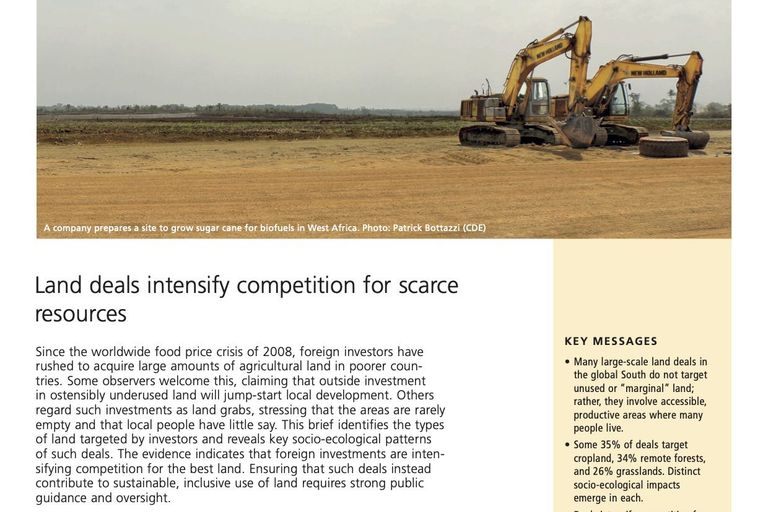Sujets correspondants

Transparenz im Rohstoffhandel: Internationale und nationale Lösungsansätze
Diese Veranstaltung der Akademien zeigt Hintergründe, präsentiert nationale und internationale Lösungsansätze und diskutiert brennende Fragen.
Des matières premières profitables aux pays en développement - Impacts locaux, connexions globales et lacunes de connaissances
En complément d’un précédent factsheet consacré au rôle de la Suisse, plaque tournante de ce négoce, nous examinons ici les questions qui se posent dans les pays en développement, et notamment des approches prometteuses dans la recherche et la politique, aussi bien pour les gouvernements de ces pays que les entreprises impliquées, les places boursières et la communauté internationale.

Land deals intensify competition for scarce resources
Since the worldwide food price crisis of 2008, foreign investors have rushed to acquire large amounts of agricultural land in poorer coun- tries. Some observers welcome this, claiming that outside investment in ostensibly underused land will jump-start local development. Others regard such investments as land grabs, stressing that the areas are rarely empty and that local people have little say. This brief identifies the types of land targeted by investors and reveals key socio-ecological patterns of such deals. The evidence indicates that foreign investments are inten- sifying competition for the best land. Ensuring that such deals instead contribute to sustainable, inclusive use of land requires strong public guidance and oversight.